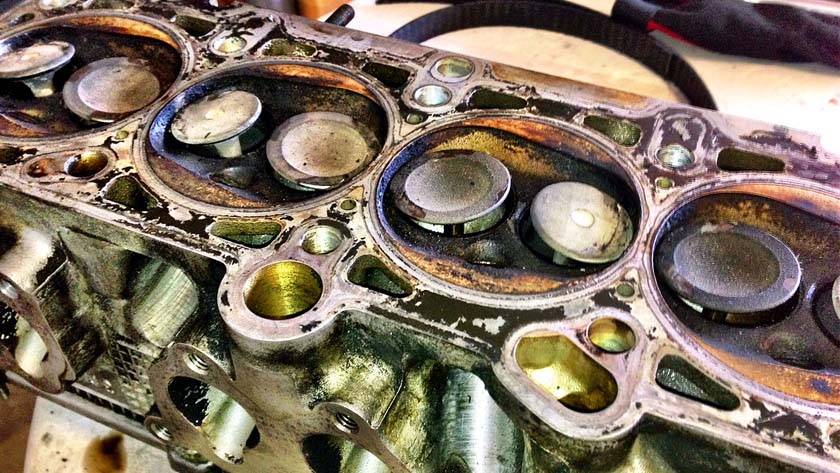Engine knocking – what is it, how can it damage your engine, and how to eliminate it?
The engine knock has arguably been there for as long as there have been cars. But for the majority of car owners in Pakistan, one can argue that for the phenomenon of engine knocking got some serious attention when owners of 10th gen turbo Honda Civic started to complain about it. It is worth mentioning here that the owners of most imported cars (mostly smaller Japanese cars and bigger German car owners) had already faced the engine knocking issue. In this blog, we will be discussing what engine knocking is, what causes engine knocking and possible solutions.
What is engine knocking?
Knocking (also knock, detonation, spark knock, pinging or pinking) in spark-ignition internal combustion engines occurs when combustion of some of the air-fuel mixture in the cylinder does not result from propagation of the flame ignited by the spark plug, but one or more pockets of air/fuel mixture explode outside the envelope of the normal combustion front. Normally speaking, engine knock is due to the uneven combustion of fuel inside the cylinder, which produces uneven high-pressure shockwaves causing the engine to vibrate and produce a knocking sound and eventually damage it.
Reasons for Engine knock
The following are the possible causes of Engine knocking:
- Very low octane rating
It depends upon the engine whether it supports a fuel of low quality or not. In Pakistan, RON87 is generally sold. Only recently, PSO started selling its petrol having RON97 (Research octane number). Honda Pakistan claimed that local petroleum marketing companies are adding manganese so that the fuel looks like the fuel having RON92. The normal level of manganese is below 24mg/kg, but the researchers at Honda found 53mg/kg. It damages the engine as well as it is very injurious to public health when it emits from the silencer. It was done so that these companies don’t have to buy a higher grade fuel and they improvised a shortcut by adding manganese.
- Carbon deposits on cylinder walls
All the fuels sold have some level of carbon cleaning detergent in them, but that’s not enough to stop the deposits from being formed on cylinders. If you have tried everything to eliminate engine knocking and it’s still there then try adding carbon cleaner with fuel.
- Incorrect spark plugs (heat range)
It is possible that your car has incorrect spark plugs installed. Every car has a specific type of spark plugs so try using company recommended spark plugs in your car. You can read more about spark plugs here.
- Incorrect spark plug gap
The correct gap between the element and the ground electrode and centre electrode is critical. If the gap is too small, the spark will be weak. If the gap is too big, the spark plug might not ignite at all.
- Engine Overheat
The overheating of the engine also causes it to knock because of the high temperature and premature burning of the fuel. So make sure all the engine cooling ancillaries are in working order.
- Ignition timing
The ignition timing decides when the fuel is burnt in the cylinder. If the ignition timing is advanced, it means that the spark will occur earlier and vice versa. Retarding the timing may also eliminate knocking; some cars that have knock sensors will do this automatically.
- Clogged catalytic converter
A clogged catalytic converter can lead to exhaust back pressure buildup. It will restrict airflow and increase temperature and lose power leading to knocking. Read more about catalytic converters here!
- Faulty knock sensor and vacuum leaks
Most engines use a knock sensor to prevent knocking. If your car is knocking out of nowhere, check this sensor. Also, some sensors use a vacuum to operate. Check the vacuum hoses for damage and lose connections.
- Incorrect installation of spark plug wires
Check for the spark plug wires. Incorrect spark plug wires can be a source of knocking. Some manufacturers recommend routing these wires in a specific pattern to prevent one wire’s high voltage from inducing a spark in an adjacent wire.
Solution
Above listed are some of the reasons for the engine knocking. One should check all these reasons if the engine knocking is not going. After checking all these parameters, the engine knocking should go away. But first of all, try changing your fuel. Try fuel from different pumps and stick to the one the suits your car the best. Some experts recommend filling your car’s tank with a mixture of regular fuel and HOBC (50/50). You can try octane boosters as well.
If you hear the knocking sound, you should at once take action to get to the cause and eliminate it. It can damage your engine badly, emits dangerous gases and also clogs the catalytic converter. Keep the environment and engine safe by eliminating the engine knocking.

